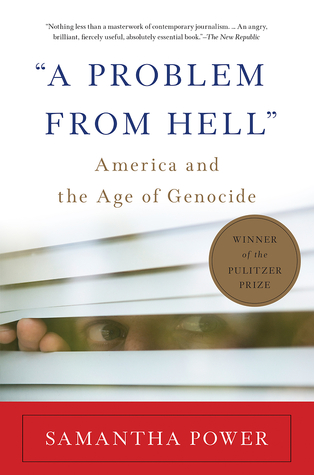It is in the realm of domestic politics that the battle to stop genocide is lost. American political leaders interpret society-wide silence as an indicator of public indifference. They reason that they will incur no costs if the United States remains uninvolved but will face steep risks if they engage. Potential sources of influence—lawmakers on Capitol Hill, editorial boards, nongovernmental groups, and ordinary constituents—do not generate political pressure sufficient to change the calculus of America’s leaders.
Welcome back. Just a moment while we sign you in to your Goodreads account.


